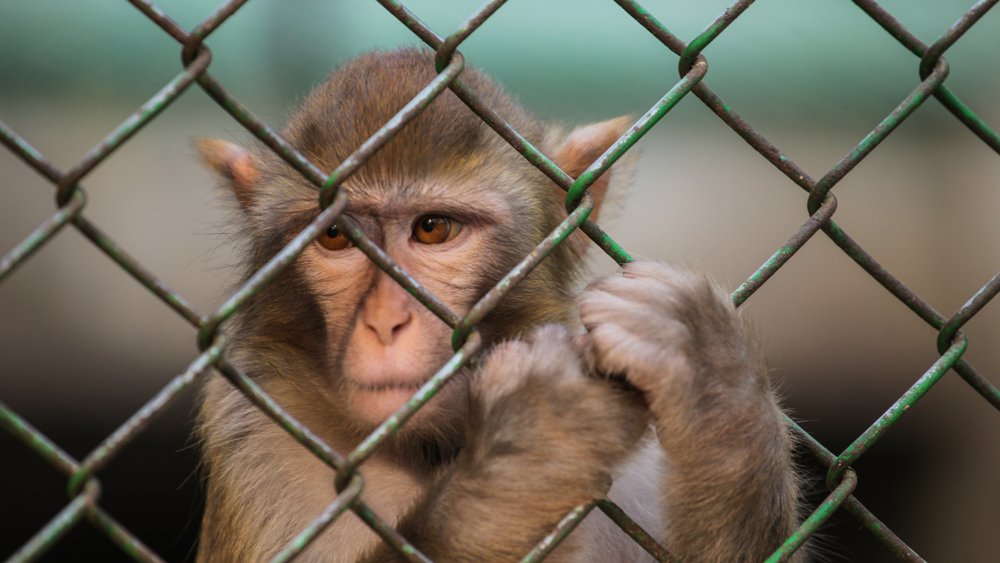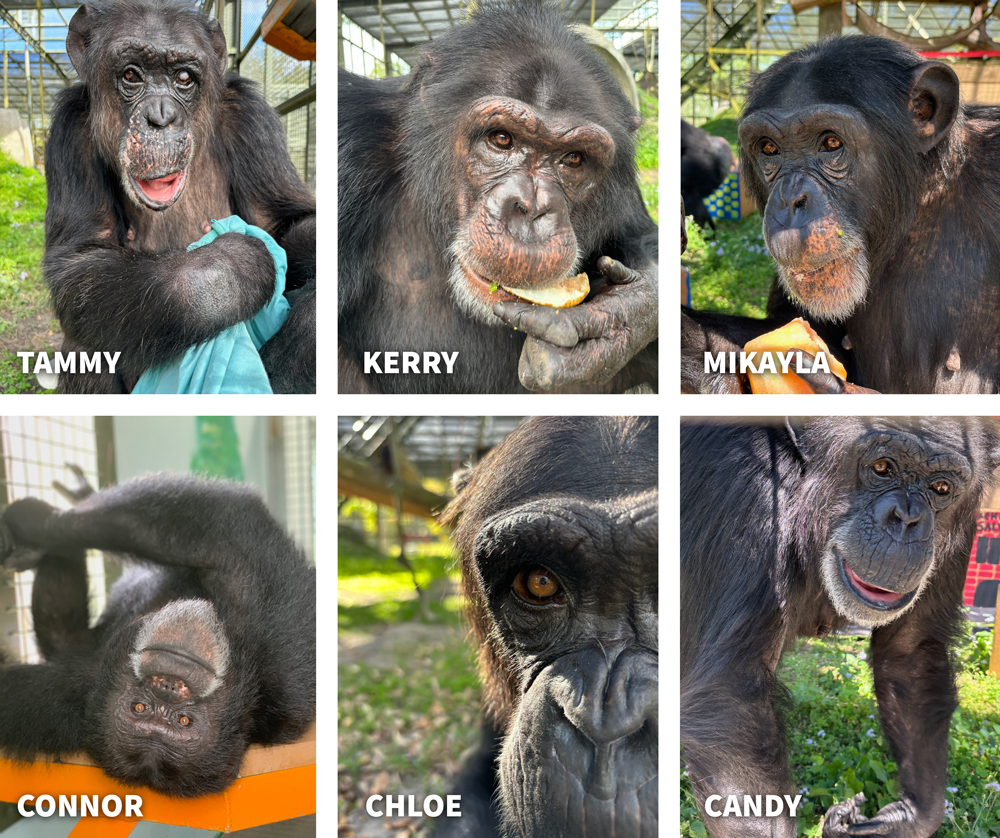| | | | | NEWS HIGHLIGHTS September 2024 |  Tell Congress: NO Funding for Primate Breeding Congress is urgently working on spending bills for the federal government’s 2025 budget, and the Senate Appropriations Committee has included $30 million for the National Institutes of Health (NIH) to renovate, expand, and build new infrastructure at its National Primate Research Centers. Although there were already nearly 108,000 primates in U.S. labs in 2023, this support will expand primate breeding efforts and increase the use of primates in invasive research in the U.S., perpetuating a reliance on animal models that are unreliable and not applicable to human disease. Act TODAY to help prevent funding that will cause countless numbers of primates to suffer! There’s added concern because, while the NIH asked for ‘only’ $10 million, the Senate Committee decided to allocate three times that amount, presumably bowing to pressure from animal research lobbying groups and ignoring the ethical, scientific, and economic concerns surrounding this flawed science. This move is misguided and irresponsible, especially considering that over 90 percent of new drugs tested on animals (including primates) fail in human clinical trials—a widely acknowledged statistic in the regulatory and biomedical research communities. Further, primates have rich emotional and social lives, and they suffer greatly when confined and used in laboratory experiments. Congress is supposed to work on behalf of the public, not special interest groups with a narrow-minded agenda that perpetuates animal suffering and a flawed approach to science. Please contact your legislators and urge them to exclude funding from the 2025 federal budget that would increase primate breeding and research! |
|  There is a shortage of organs available for transplant in the U.S., but the research of University of Wisconsin’s Matthew Brown, Ph.D.—a recipient of an Alternatives Research & Development Foundation (ARDF) grant—will help to reduce the strain on this important resource. Using human cells, Dr. Brown is developing a method to detect early signs of kidney rejection and identify ways to stop the rejection and save the organ. (ARDF is an affiliate of AAVS.)
READ MORE » |  The Animal Protection Party of Canada (APPC) is demanding that Canada stop importing long-tailed macaques from Cambodia for use in labs. The U.S. stopped importing the monkeys in 2022, following indictments filed against Cambodian officials allegedly involved in a monkey smuggling ring. Since then, thousands of the monkeys have been imported into Canada. An APPC official commented, "It’s time to show the world that we will not be complicit in the commercial exploitation of an endangered species.”
READ MORE » | | | |
| | SANCTUARY MOMENT: Center for Great Apes |  Safe in Sanctuary You may have heard about the docuseries “Chimp Crazy,” which focuses on a chimpanzee named Tonka and the woman who claims to love him like her child yet kept him in deplorable conditions. But there are other chimps who lived with Tonka before he was secretly moved and his owner faked his death. Who are they and what happened to them? Meet Candy, Chloe, Connor, Kerry, Mikayla, and Tammy! They arrived at the Center for Great Apes (CGA) in Florida in July 2021, and—thanks to their caregivers who have vast experience working with apes rescued from the entertainment industry—they were able to quickly adjust to their new home. Unfortunately, Connor was soon diagnosed with advanced bladder cancer and passed away. However, the remaining five chimps continue to thrive at CGA, enjoying comfortable, grass-covered enclosures, fresh fruit and vegetables, and fun play activities—all things they likely did not have prior to arriving at the sanctuary. We’re thrilled to know they are doing so well, and we couldn’t be happier for them! CGA is a longtime recipient of AAVS Sanctuary grants, and they do a great job of highlighting the chimpanzees and orangutans in their care on social media. Be sure to check them out to see all the ape shenanigans!
LEARN MORE » | | | | | | |